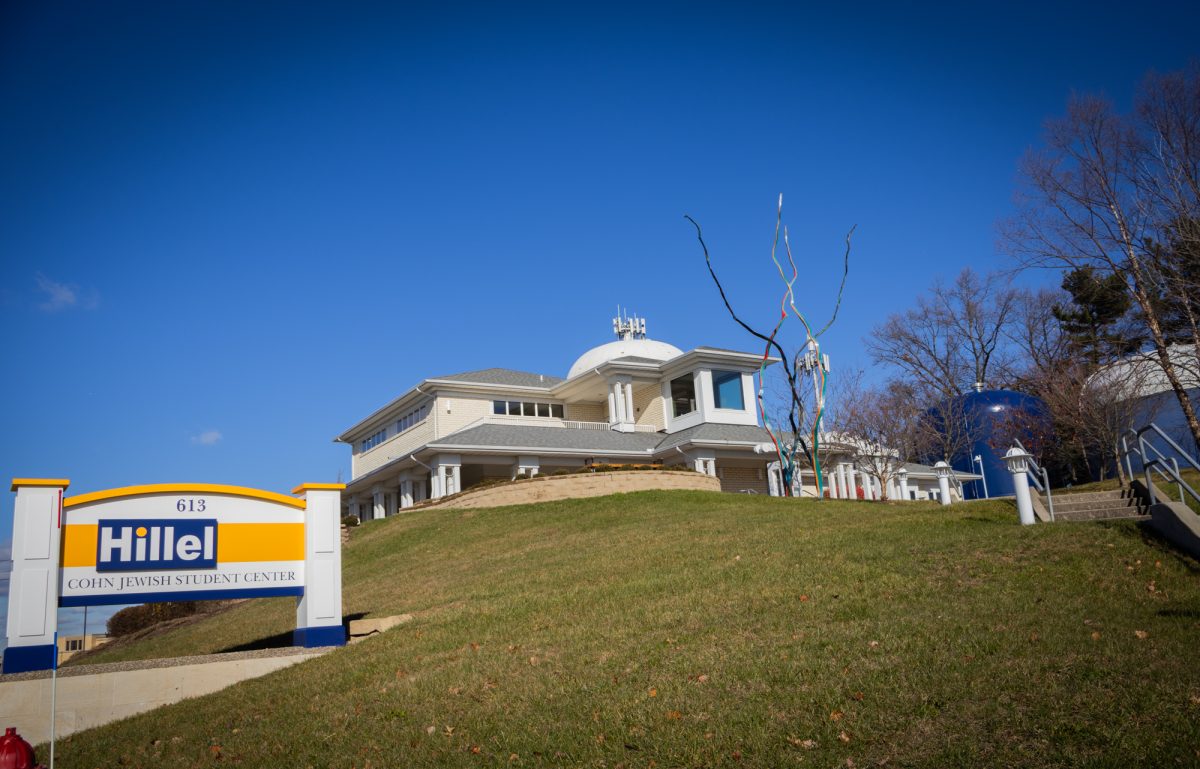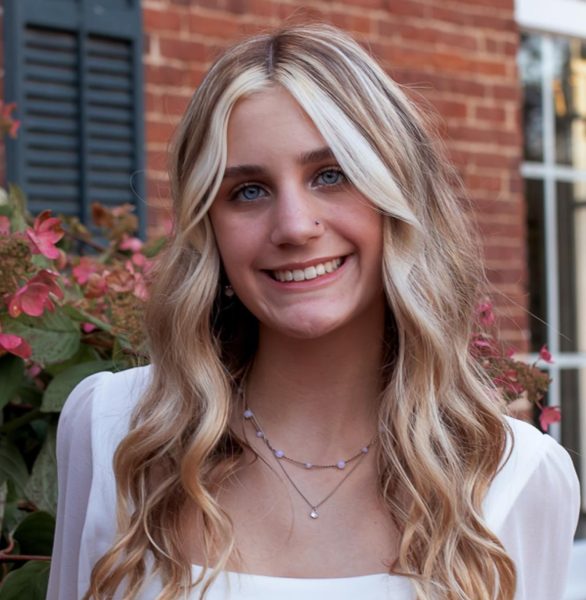More than 250 people filled the Hudson Green for a community rally organized by Jewish and Christian congregations, rejecting antisemitism and pledging solidarity, days after a confrontation by Nazi protestors.
Rabbi Michael Ross of Temple Beth Shalom in Hudson, who helped organize the interfaith vigil, said the rapid response was crucial.
“After the first round of neo-Nazi protests, we wanted to respond to this hate with a show of love and compassion,” Ross said. “We organized on Facebook within a couple days as well, and we had well over 250 people there.”
Rachel Felber, executive director of Hillel at Kent State University, explained that when it comes to helping students with antisemitic hate, the approach has to be flexible and personal.
“There’s no one way to support a student affected by antisemitism,” she said. “For some, it’s sitting and hanging out with us, for another, it’s finding ways for them to release frustrations through music or art. One of the things that we’re really proud to say that we have here is free license counseling for any student who might need it.”
For Ross, the purpose of the vigil went beyond the numbers. It was about reassuring a community that often feels isolated in moments of hate.
“When Jews are attacked like this, we feel all alone,” he said. “We feel like we’re the only ones going through this nightmare, and we’re such a tiny minority that it can be very isolating to feel like this hate is targeting us and minimizing who we are.”
Felber said she has seen signs of progress with antisemitism through relationships with the administration.
“We have strong relationships with Kent State’s administration, with Dr. Eboni Pringle, with Todd Diacon, among others,” she said. “We feel heard, and we continue to think together about how we could be more proactive around creating a welcoming environment in which every Jewish student feels like they belong on this campus.”
Looking ahead, Ross said his focus is on fostering a genuine dialogue rather than fueling division.
“We live in a divided country where we prefer debate,” he said. “I encouraged us to move from debate to dialogue. It’s hard, but if we can enter into a conversation not to score points, but to hear someone else’s story with curiosity, that person’s story might allow us a whole new realm of engagement.”
Felber emphasized that Hillel’s mission is to create an environment where students feel secure, accepted and able to bring their full selves to campus life.
“Everything that we do here at Hillel is planned with the intention to create a safe space that fosters community and encourages dialogue,” she said. “This may be constructive and may be challenging, but that allows people to come out feeling like their voices were heard and that they were able to safely express themselves.”
Savannah Carroll is a reporter. Contact her at [email protected].



